At the end of the year, you promised yourself that in January you will start exercising, eating better, and giving up bad habits in general. But even though your intentions are good, there is not enough motivation.
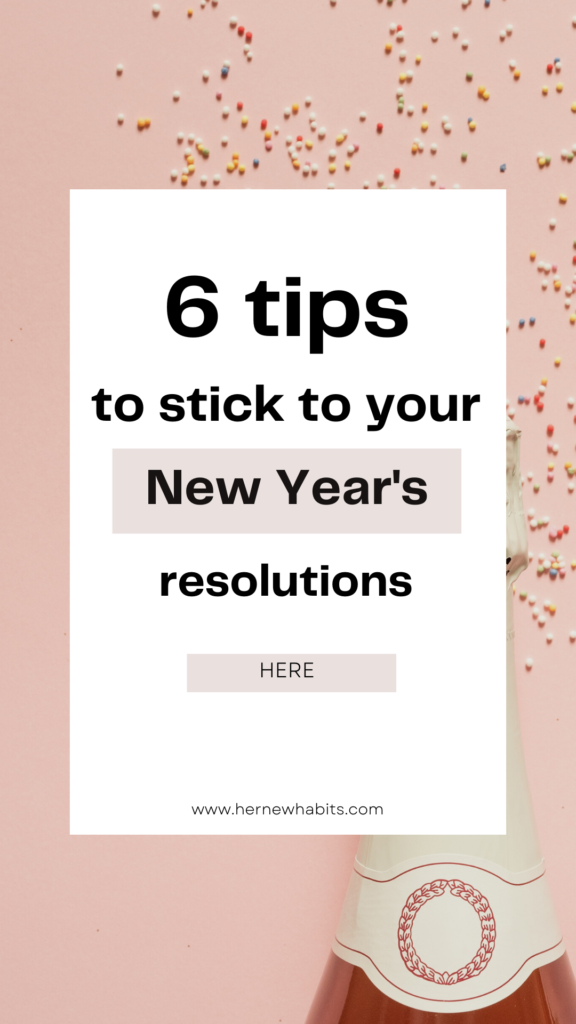
No matter what you do, you always go back to your old routine, and wonder why is it so hard to break bad habits?
Like you, millions of people around the world struggle to keep their New Year’s resolutions, and they get frustrated because of that.
The good news is that there are ways to change this.
Imagine if you could not only get started on your New Year’s resolutions but also stick with them for as long as you want. Does that sound exciting?
Well, it’s possible!
Below, you will find six strategies that you can use to be consistent and achieve what you want this new year.
6 Tips To Make New Year’s Resolutions Stick
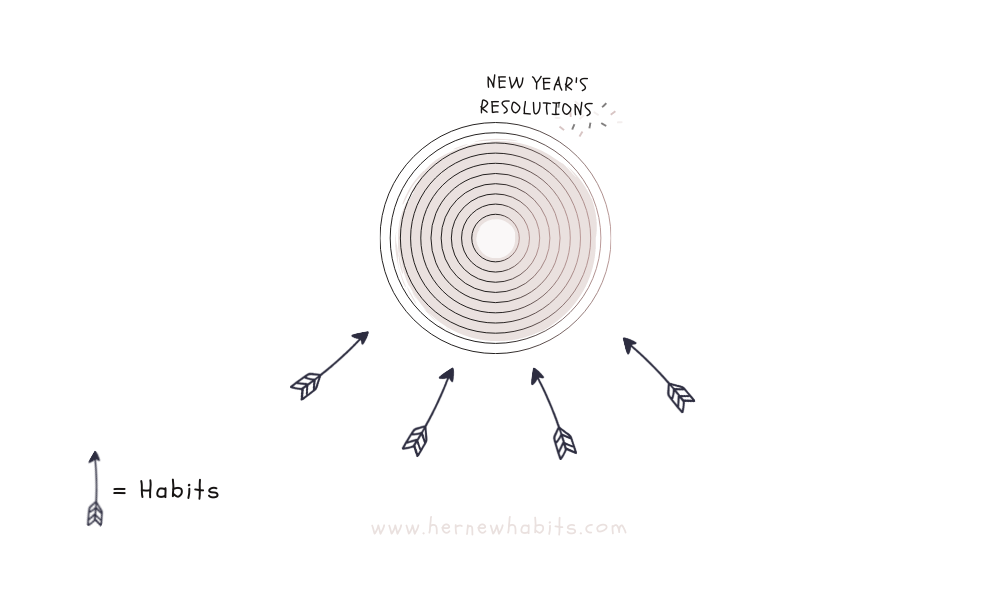
1. Focus on habits, not goals to stick to new year’s resolutions.
A big mistake you make is to write your resolutions as if they were goals.
You say things like: “I want to lose 20 pounds in two months” or “I want to make (X amount of money) every month”.
And when you think of your resolutions this way, you have these limitations:
- There is a final date:
There is a chance that you will forget about your goal once you reach that date. In the first example, you gave yourself two months to lose weight and you don’t know what’s next. - There is the “where”, but not the “how”:
Goals refer to the desired outcome, but not to the way to get there. In the second example, you want to make a certain amount of money, but you have no idea how you would do that. - Goals are not sustainable:
To maintain a goal your brain invests a big amount of its power, which gets hard to sustain in the long term. Also, when you focus so much on the outcome you forget to enjoy the process, and that’s essential to be consistent with anything.
What can you do instead to stick to your new year’s resolutions?
Instead of thinking of your resolutions as goals, think of them as habits.
It’s okay to set goals for yourself, but if you want to achieve them you have to be more specific.
These are a few of the benefits of using habits:
- There is no final date:
Once you develop a habit, they stay with you for as long as you want. - They show you the “how”:
Habits are a guide to help you accomplish your desires. They show you the step-by-step you need to succeed. - They have a bigger impact:
When you add habits together you can create a more significant change in your life. You only need one habit to start called Keystone Habit. - Habits are easy to keep:
Your body performs habits without using all of your brain’s capacity, which makes them easier to maintain.
| GOALS | HABITS |
| Have an exploration date | Have no final date |
| Show you the “where” | Show the “how” |
| Require high levels of brain power | Require low levels of brain power |
| Don’t create a domino effect in your life | Create a domino effect in your life |
Related post: How to build a new habit
Here is a real-life example for you:
Let’s say you want to cook more often at home.
If you set a goal, you will say that you will cook at least once a week at home.
But if you establish habits, you can say that every night you will plan the next day’s meals. And that you will keep your pantry stocked well by getting groceries every Sunday.

Can you see the difference?
When you build habits, you are creating a plan of how you will get what you want.
| GOAL: Cook at least once a week at home. |
| HABITS: – Plan the next day’s meals every night. – Get groceries every Sunday night. |
Try this to stick to your new year’s resolutions:
Create a list of your goals for the year and for each of them think of two or three specific actions that can help you achieve them. These actions need to be easy as you will need to repeat them every day to create the habit.
You can use the same strategy for any aspect of your life.
- Do you want to drink more water? Create the habit of carrying a water bottle with you all the time.
- Do you want to reduce screen time? Create the habit of putting your phone in another room while you are studying.
Related post: What are the sections of a vision board.
2. Don’t rely on willpower if you want to stick to new year’s resolutions.
Willpower is the ability you have to avoid temptations, which is also known as self-control. It is the ability you have to say no or yes to things around you.
People believed for a long time that regulating yourself was key to reaching your goals because when you are able to delay instant gratification you are more likely to be consistent.
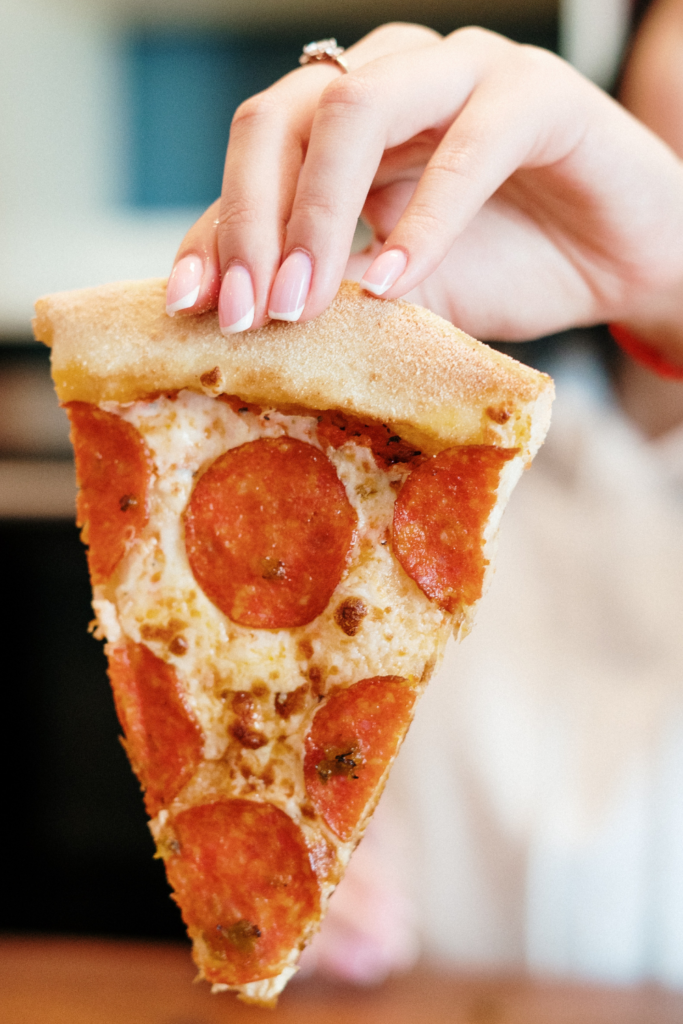
But, a study with 200 college students concluded something different. Throughout the day, the students received messages asking if they were feeling any temptations related to the four goals they had set at the start of the week.
In the end, the students who tried to control themselves (resist temptations) were less ahead of their goals and felt more exhausted. And participants that reported higher levels of self-control did not have better results in achieving their goals. The ones who achieved their goals were those who weren’t tempted at all.
These results suggest that there is no relation between willpower and reaching goals.
This is why, even though you said you would eat healthier, you eat those chocolate chip cookies you bought. And after a day of trying to avoid them, you feel more tired and stressed out.
Another important fact about willpower is that it needs the help of your brain to make decisions.
The energy your brain uses for this purpose is very limited, and once you use it all, you lose self-control.
That makes it so difficult to stick to your new year’s resolutions. If you rely on your willpower all the time, your brain will need extra energy to make decisions.
In the other hand, when you create habits, your body learns to do things without asking permission from your brain.
| WILLPOWER |
| – Needs help from your brain to make decisions. – It is not necessary to have willpower to reach your goals. |
Habits are an automatic response, and your brain uses very few resources when you perform them.
A few years ago, I was struggling with exercising.
One day, I realized that getting started was the hardest part for me, so I decided to try something different.
I started to put my workout clothes next to my bed so I could see them right after I woke up. And it worked!
Now, I wake up and put on my workout clothes without thinking about it. This helps me to get ready to exercise even if I’m not feeling like it.
What I did was to program my brain to do something simple that helped me to get started with exercising.
In this example, I let my body do all the work. And my brain saves its energy for other tasks, such as enjoying and being present during my workout.
When you create habits, your body learns to do things without asking permission from your brain.
3. Understand why you do what you do
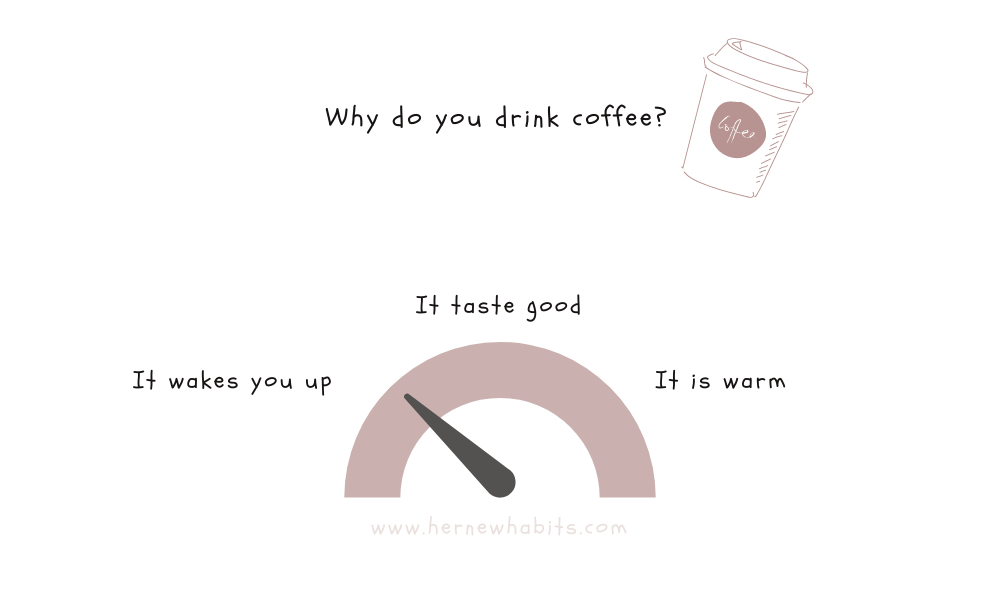
One simple thing you can do to change your behavior is to understand why you are doing what you are doing.
Why do you choose to lay down on the couch over going to the gym? Is it because you are tired? Is it because you feel safer in your house than in the gym?
Or, why do you drink soda every day? Is it because you are thirsty? Or is it because of the way it makes you feel?
Here’s another example:
Let’s say your habit is to drink three cups of coffee a day, and your goal is to reduce it to one cup per day.
By understanding your behavior, you may discover that you drink it because it keeps you awake (benefit).
What you can do is find something else that can keep your eyes open throughout the day. If you feel energized talking to people, try to use that to keep you awake. Try calling a friend or family member whenever you feel like drinking coffee.
This way you get the same benefits and eventually, you will break your addiction to caffeine.
This is different for every person, and it depends on your personality, your old habits, and your environment.
Not everyone feels good after talking with people. Maybe something that helps you stay alert is taking a walk or stretching.
Take each of the behaviors you want to change in your life and identify the benefits you get from them. Then find other activities you can do to get the same effects.
4. Use immediate rewards to keep your new year’s resolutions.
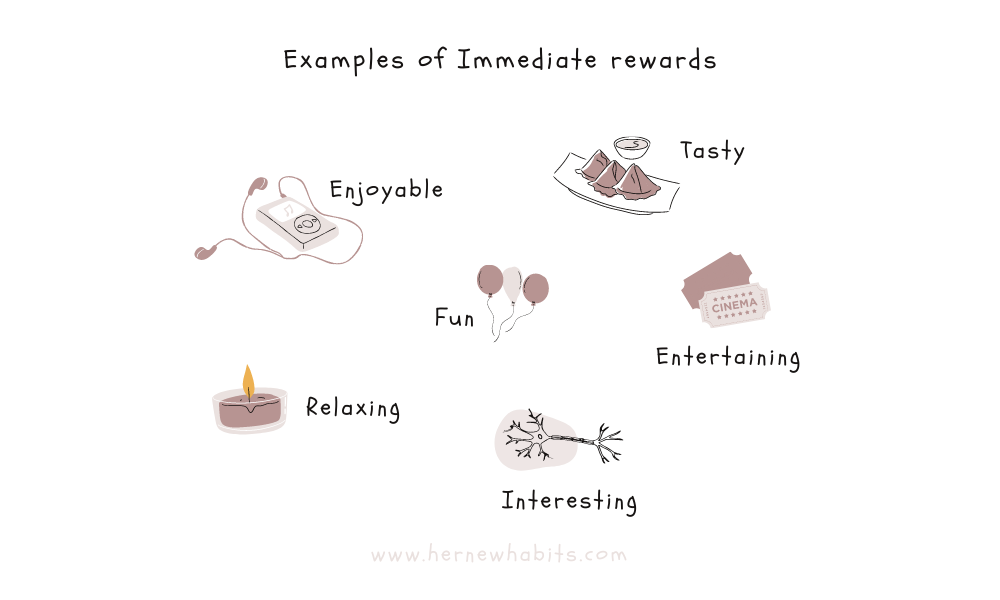
It’s common to find resolutions related to health, money or learning new skills.
When you set goals for the new year, you often focus on the benefits in the long term (delayed rewards). For example, you want to exercise to be healthier or get in shape. But a study showed that immediate rewards can predict how persistent people will be with their goals.
These types of rewards are present in the moment, such as enjoyment. When you do things that you enjoy, it is easier for you to complete them and to stick to them.
Instead of focusing on the long-term benefits, focus on what you can get from the activity now.
Some people like cooking at home because it is a time when they can feel more creative. Or some people like walking around their neighborhood because that helps them clear their minds. In the future, these two activities (cooking and walking) can produce effects such as being healthier and not gaining extra weight. And that’s great, but that won’t be enough for you to keep doing these activities every day.
Use the immediate rewards to be stick to your new year’s resolutions.
For example, I started to work out at least 3 days per week because I wanted to get in shape for a trip I had planned. I’m not a fan of the gym, so I started at home and in the first weeks, I joined an online dancing class.
Dancing is something I enjoy doing, so that worked as my immediate reward. I didn’t realize it at the beginning, but that helped me to be consistent until today (2 years later).
Immediate rewards go unnoticed, so do your best to be aware of them and they can work in your favor.
5. Identify old habits that stop/help you
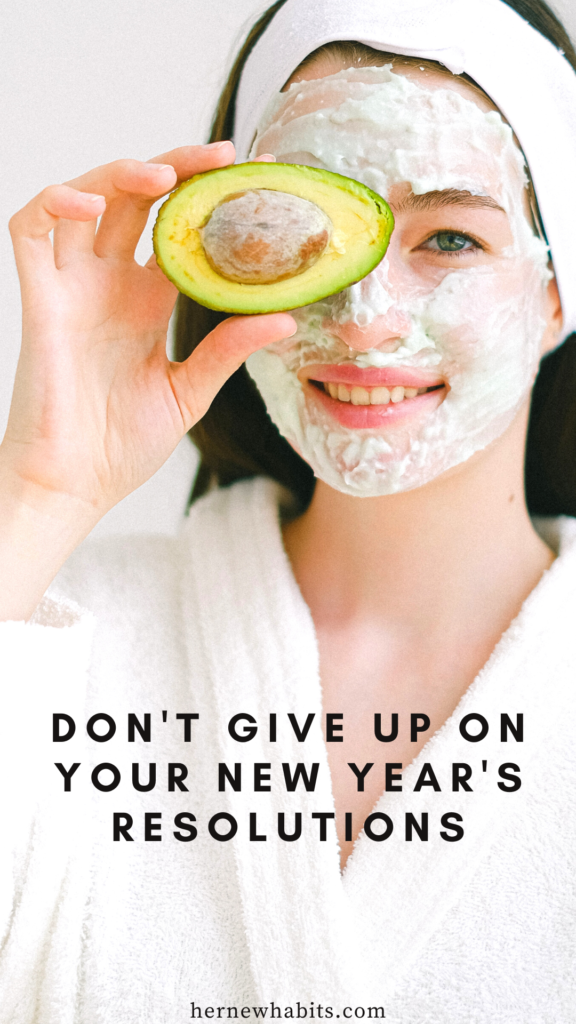
Your life is the result of habits that you created when you were younger.
Maybe you never got used to washing your dishes after eating or cleaning the counters daily, and now your kitchen always looks messy. These mini habits start building your daily routine and that creates what your life looks like today.
You can use these old habits to create new ones.
Think about the things you do every day that can help you or stop you from doing what you want.
For example, you intend to drink more water. You know that every time you go to the vending machine at work, you buy a soda. Instead, what you can do is get into the habit of carrying a water bottle with you. That way, every time you feel like drinking something, water will be your first option
Use what you do today to create new and better habits. Start with small changes and be patient, because over time your new habits will become stronger than the old ones.
6. Don’t limit yourself to start only at the beginning of the year
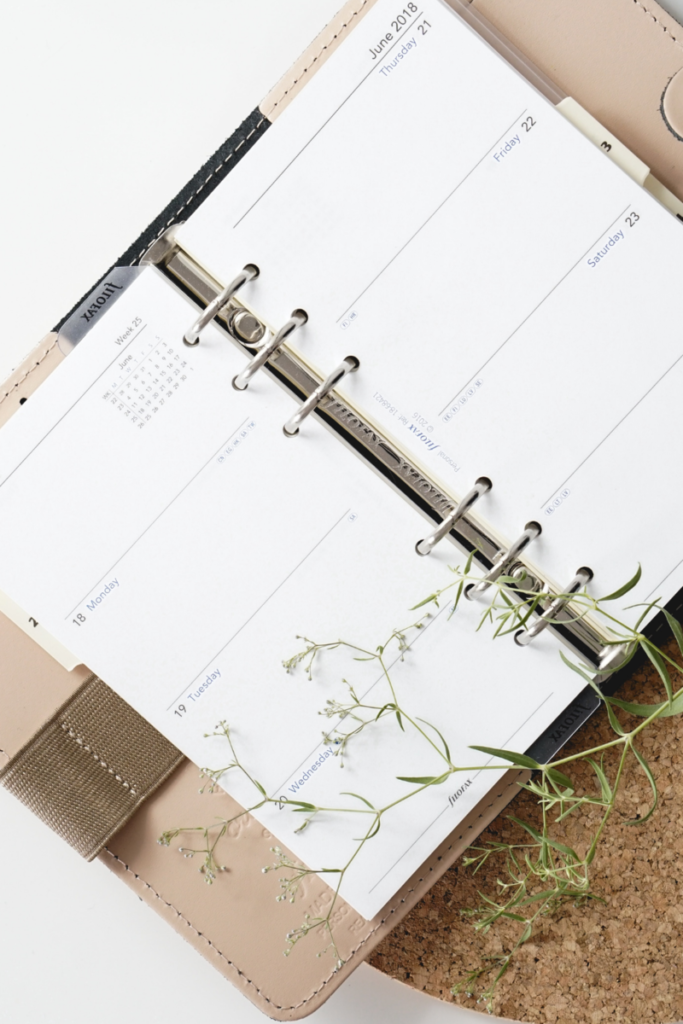
It’s common to think that you can only make changes in your life in the new year for that “fresh start”. But that shouldn’t always be the case.
Start to put yourself in the mindset where you can change or start something new in the middle or at the end of the year. You will be creating consistent changes almost every day and in the long run, that will bring more benefits to your life.
Related post: How to start a healthy lifestyle with a busy schedule
Conclusion
Her New Habits is my way of sharing all the things that have improved my health, mind, and the way I work. So that you can learn from my experiences.
In each article, you’ll find simple actionable steps you can take to get real results.
Let’s review the basics of this article on how to make your new year’s resolutions stick:
- Don’t only focus on goals, focus on the habits you can create to achieve those goals.
- Willpower won’t be enough to stick to your new year’s resolutions. When you create habits, you can be more consistent.
- The benefits you get from your actions will help you to stick to them.
- Find immediate rewards for keeping your habits.
- You can use old habits to create new ones.
- Don’t wait until the beginning of the year to start.
Using these strategies, you will change the way you approach your New Year’s resolutions and build the foundation for your best year ever!
Which one are you going to try first?
Share it with me in the comment section below!
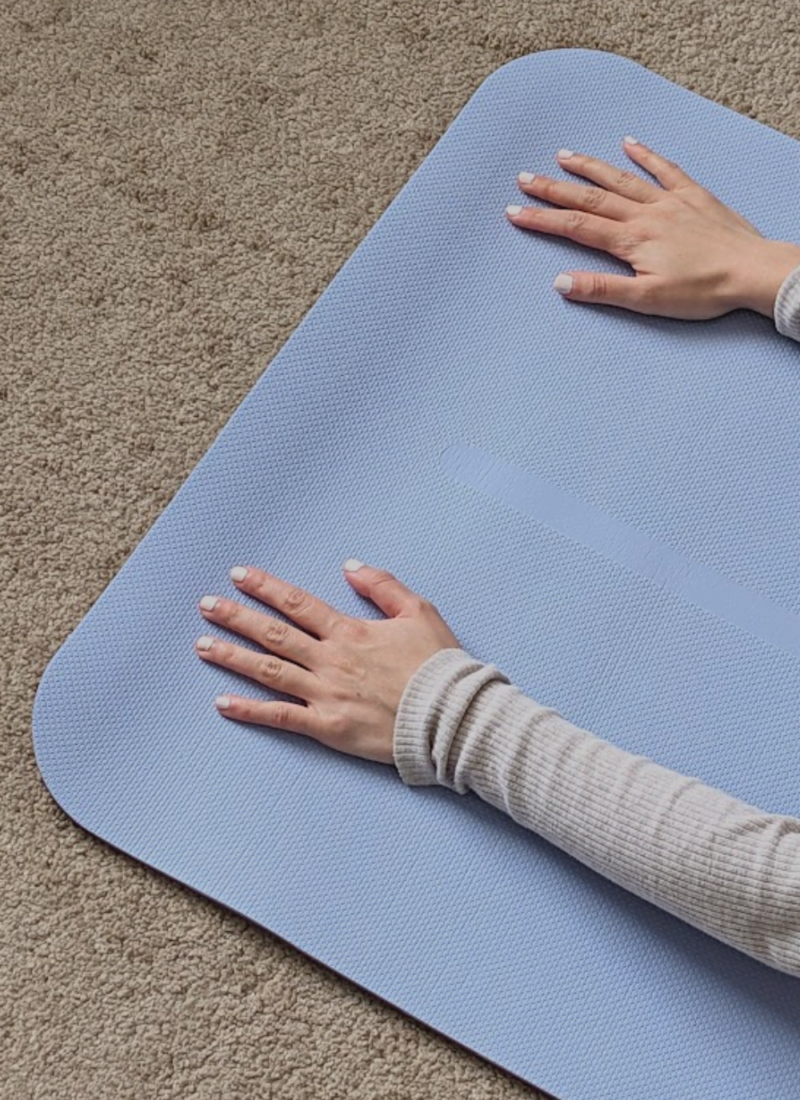

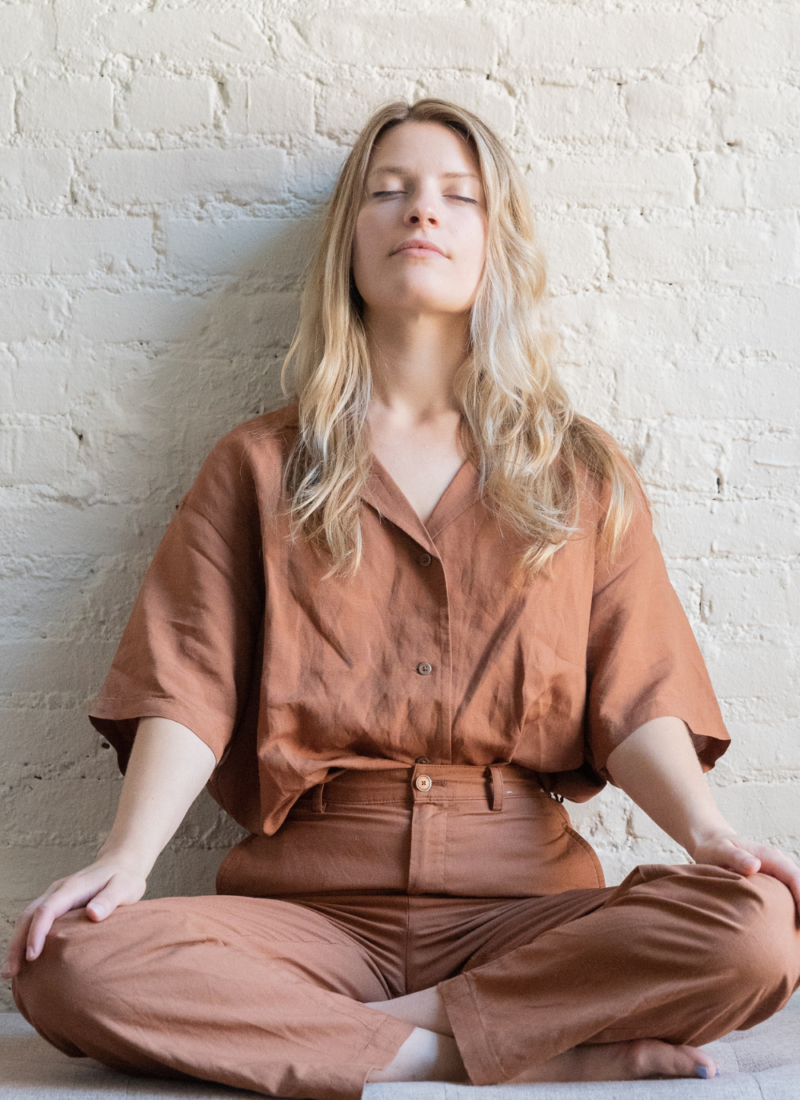
Leave a Reply